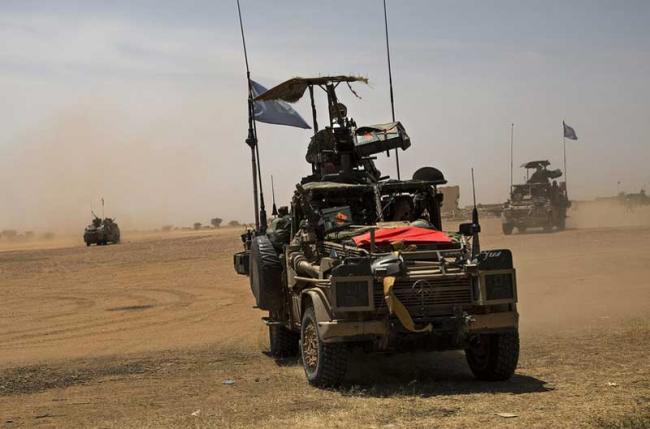
Complex and deadly new threats mean UN missions must adapt, argue Force Commanders
New York, May 10 (IBNS): Evolving and increasingly deadly threats, together with deepening humanitarian crises mean that United Nations peacekeeping missions around the world need more support for ‘blue helmets’ on the ground, Force Commanders told the Security Council on Wednesday.
In their briefings, military chiefs from the UN peacekeeping operations in Darfur, Mali and South Sudan underscored that these obstacles have to be overcome, if UN missions are to implement their mandates; in line with the Dos Santos Cruz Report on casualties suffered by peacekeeping missions.
The retired Lieutenant General’s report released in January, said the UN flag no longer offered “natural” protection to peacekeepers, and UN peacekeeping has pledged to develop an action plan to put its recommendations into practice.
“We owe it to our peacekeepers, both civilian and military, to implement the action plan, to change our mind-sets and to adapt – how we lead at all levels – to the new challenges we face,” said Major General Jean-Paul Deconinck, the Force Commander at the UN Multidimensional Stabilization Mission in Mali, MINUSMA.
The mission remains one of the most dangerous of all UN missions, where more than 160 uniformed and civilian peacekeeping personnel have lost their lives.
In addition to the threats posed by armed groups and terrorists, supplying remote outposts and dealing with harsh environments have severely challenged UN operations; underscoring the importance of comprehensive training, high-quality medical equipment, air-support and strong intelligence gathering and processing entities, said Maj. Gen. Deconinck.
The multidimensional nature of UN operations “must also include a regional approach to address the crisis through all the dimensions, in all countries of the Sahel region,” he added.
Darfur
Lieutenant General Leonard M. Ngondi, the Force Commander at the African Union-UN Mission in Darfur (UNAMID), stressed that the importance of peacekeeping missions as political tools for finding durable solutions to conflicts, could not be overemphasized.
These include restrictions on UNAMID’s freedom of movement and cooperation on the part of the Sudanese government; dealing with armed groups operating outside the peace framework; helping ease inter-communal conflicts over natural resources; and dealing with rising crime and banditry together with the proliferation of weapons.Challenges in Darfur, though different in nature than Mali, are also extremely complicated and must be addressed for the Mission to deliver on its mandate, he said.
In increasing support for UNAMID, Lt. Gen. Ngondi urged the Security Council to consider adding a so-called “transition strategy” as part of the Missions’ mandate.
“Lessons learned from missions in Liberia (UNMIL) and Côte d'Ivoire (UNOCI) show that good transition guarantee gains made are not in vain,” he said.
South Sudan
Force Commander at the UN Mission in South Sudan (UNMISS), Lt. Gen. Frank Mushyo Kamanzi, also spoke of the challenges faced by the mission in the world’s youngest country that has spent much of its short history since 2011, mired in conflict, plunging the country into a humanitarian and economic crisis.
Providing security and civilian protection in South Sudan has grown more complex having moved from a conflict between two parties to one in which the transitional Government “has the upper hand, but faces political and military opposition from multiple actors,” said Lt. Gen. Mushyo.
“Protection of civilians remains our priority task and we continue to provide physical protection to over 209,000 internally displaced persons and UN agencies and other humanitarian actors who live and work within the five Protection of Civilian sites,” he added, noting that over 40 per cent of UNMISS peacekeeping troops are dedicated to this task.
Underscoring the importance of a political solution to the crisis in the country, the UNMISS Force Commander called on the Security Council to encourage all parties in the country to work to that end, which he said “will in turn improve the prospects of the mission achieving its mandate.”
UN Photo/Marco Dormino
Support Our Journalism
We cannot do without you.. your contribution supports unbiased journalism
IBNS is not driven by any ism- not wokeism, not racism, not skewed secularism, not hyper right-wing or left liberal ideals, nor by any hardline religious beliefs or hyper nationalism. We want to serve you good old objective news, as they are. We do not judge or preach. We let people decide for themselves. We only try to present factual and well-sourced news.







